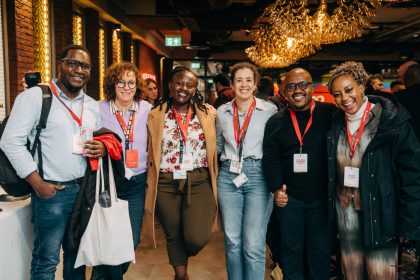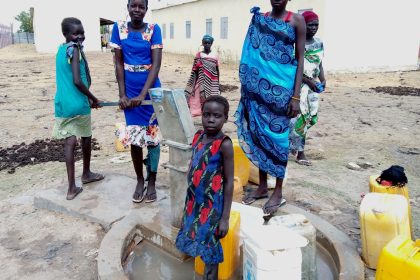MasterCard Foundation calls for policy change

Wallace said African policymakers must strengthen social, education and economic systems to promote inclusive growth.
February 22—Young people across sub-Saharan Africa need inclusive training for both formal and informal job opportunities if policymakers are to get to grips with widespread youth unemployment.
“To reach a critical mass of young people, fundamental shifts in our approach to skills-building, access to finance and entrepreneurship support are necessary,” Lindsay Wallace, the Director of Learning and Strategy, at The MasterCard Foundation said.
Speaking at the launch of a new report ‘Invisible Lives: Understanding Youth Livelihoods in Ghana and Uganda’ released at the Young Africa Works Summit held in Kigali, she said, “Development efforts must strengthen social, education and economic systems, and promote inclusive growth that will provide the most vulnerable and marginalized young people with opportunities to improve their lives.”
The report which was released by The MasterCard Foundation in collaboration with Low-Income Financial Transformation (L-IFT) states that international development programs that favour formal skilling over informal skilling fall short of reaching millions of youth who engage in mixed livelihoods for survival.
Invisible Lives sets out to explore how young people integrate mixed livelihoods into their working lives, what challenges this approach poses, and how best to design interventions for young people in the informal sector. Invisible Lives highlights the extraordinary lengths that young people go to in order to achieve sustainable livelihoods.
The research used a diaries methodology to document the working lives of 246 youth ages 18-24 from Ghana and Uganda over a one-year period, honing in on questions around behaviour, income, economic activities, and time management. While these data speak to the realities of employment in Ghana and Uganda, the research suggests that these also reflect emerging trends across Africa.
It is shown in the report that despite the huge potential the agriculture sector offers, interventions aimed at improving livelihoods have not been considered. Even efforts geared towards the formal sector have not paid off as most of those who receive the training have nowhere to use it, given the limited formal private sector vacancies. In the end, many young people have been pushed towards mixed livelihoods for survival.
The authors of the report therefore proposes that the development community, policymakers, and other relevant stakeholders provide youth with the right opportunities. They want policies that will spark economic growth, expand options for the most vulnerable and marginalized and deploy solutions for scalable interventions with tangible impact to overcome the paradox of unemployment restraining the young people from achieving their potential.

 100+ Accelerator selects Ugandan startup Yo-Waste to pilot glass recycling at Nile Breweries
100+ Accelerator selects Ugandan startup Yo-Waste to pilot glass recycling at Nile Breweries
 Boeing’s record SAF purchase supports airlines decarbonisation efforts
Boeing’s record SAF purchase supports airlines decarbonisation efforts
 Uganda Airlines likely to miss Spirit A320neo delivery slots
Uganda Airlines likely to miss Spirit A320neo delivery slots
 Rolls-Royce Pearl 10X engine takes flight
Rolls-Royce Pearl 10X engine takes flight
 Unpacking results-based financing: balancing strengths with weaknesses
Unpacking results-based financing: balancing strengths with weaknesses
 Big fish in small pond Stanbic notches up $100m profit for 2023 topping previous figure by 15%
Big fish in small pond Stanbic notches up $100m profit for 2023 topping previous figure by 15%
